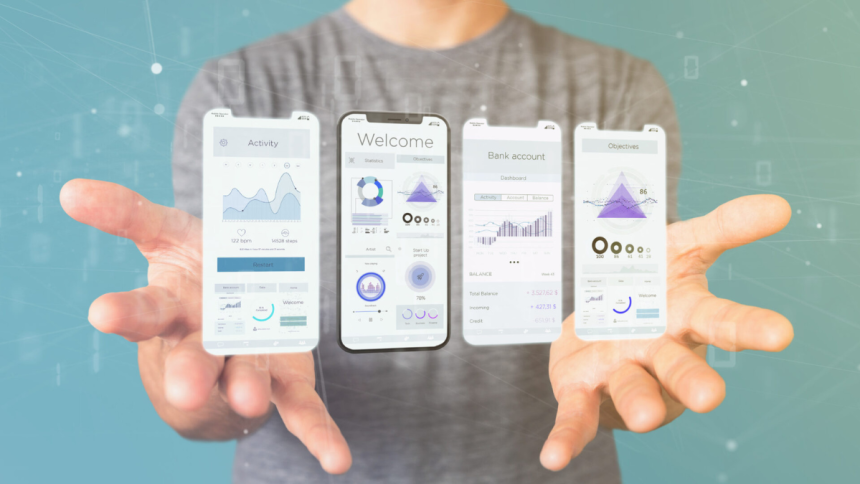In the era of tap-to-pay and same-day delivery, mobile apps have become the backbone of modern convenience. But beyond the obvious food delivery and streaming giants, there’s an expanding universe of app types designed to solve very specific problems. For business owners, knowing which kinds of apps are actually driving value—for both consumers and your bottom line—is more than helpful. It’s essential. Whether you’re running a healthcare clinic, a retail operation, or a logistics company, there’s an app category that’s reshaping how people engage, buy, heal, or move. Let’s explore five of them.
Medical Imaging Apps Making a Difference
Medical imaging used to be the kind of thing only specialists in lab coats worried about. But in a world where quick diagnosis and seamless communication can save lives and money, more businesses in the healthcare space are leaning into custom-built solutions.
This is where custom mobile apps come in. When off-the-shelf tools don’t quite meet the mark—especially in handling sensitive tasks like imaging storage, analysis, or real-time sharing—custom mobile apps give providers the control they need to tailor workflows and improve accuracy. These apps help technicians, doctors, and administrators stay connected, reducing lag between image capture and action. Patients benefit, too. Faster diagnoses mean less waiting, less guessing, and more effective treatment.
Healthcare Apps That Improve Patient Care and Benefit Business Owners
Healthcare apps are rapidly becoming the standard. And not just for patients, but for businesses trying to keep up with new expectations. A well-built healthcare app can simplify appointment scheduling, help people manage chronic conditions, offer telehealth visits, and make essential information available at the swipe of a thumb.
For consumers, these apps deliver convenience, privacy, and control over their health journey. For businesses, they offer data, engagement, and retention. When people use an app to track their symptoms, refill prescriptions, or speak with a provider, they’re more likely to stay loyal to the brand delivering that service. They’re also more likely to show up for appointments, take their meds on time, and stick to treatment plans—outcomes that improve efficiency and reduce costly complications.
The Role E-Commerce Apps Play in Business Growth
Think about the last time you impulse-bought something. Odds are it didn’t happen while walking a mall—it happened while scrolling your phone. E-commerce apps impact the way people shop, and for business owners, they’ve created a powerful opportunity to drive sales 24/7.
These apps put your store in your customer’s pocket. They simplify the buying process, send targeted promotions, and track behavior in ways that brick-and-mortar stores simply can’t. But more than that, they help personalize the shopping experience. From recommended products to loyalty rewards, customers feel seen—and that leads to repeat business.
For businesses, the benefits go beyond convenience. E-commerce apps make inventory management, order tracking, and customer service more streamlined. They offer analytics that can guide everything from pricing to marketing campaigns. And perhaps most importantly, they lower the barrier to entry for mobile-first consumers who expect seamless interactions.
Finance and Budgeting Apps
Personal finance apps often get the spotlight for helping individuals track spending and hit savings goals, but they’re just as useful—if not more so—for business owners looking to tighten the books. Apps in this category can automate expense tracking, categorize transactions, and even offer cash flow forecasts. They’re basically pocket-sized CFOs.
Consumers love the control and transparency these apps provide. Business owners should love the automation and insights. Imagine knowing, in real time, where your money’s going—and being able to make smarter decisions because of it. From payroll to profit margins, the ability to stay on top of your financial health without hiring a team of number crunchers is a major advantage.
Productivity and Collaboration Apps
Whether your team is five people in an office or fifty spread across time zones, productivity and collaboration apps keep the wheels turning. These tools do everything from organizing projects and assigning tasks to enabling instant communication and document sharing.
For consumers, the impact shows up in daily life: managing school, side gigs, or personal goals. For businesses, the value is multiplied. Better collaboration means faster turnarounds, fewer missed deadlines, and a culture that thrives on clarity and accountability.
Apps in this category are also adaptable. Need a quick brainstorm? Fire up a chat thread. Reviewing a contract? Collaborate on a shared doc. Setting goals for the quarter? Build a project board with deadlines and owners. And because everything syncs across devices, people can work how they want, where they want.
Lynn Martelli is an editor at Readability. She received her MFA in Creative Writing from Antioch University and has worked as an editor for over 10 years. Lynn has edited a wide variety of books, including fiction, non-fiction, memoirs, and more. In her free time, Lynn enjoys reading, writing, and spending time with her family and friends.















